Search
 Video
Video
A Concise Guide to Colorectal Cancer for Primary Care Providers
This presentation on colorectal cancer – the third most common cancer in the U.S. – unpacks the risk factors (including how to assess family history); reviews symptoms, treatments and survival data; and offers guidance on meeting patients’ post-treatment needs. Video
Video
Preeclampsia Update: How to Identify and Manage a Perilous Pregnancy Complication
This important talk from Annalisa Post, MD, a perinatologist with the UCSF Fetal Treatment Center, clarifies the definition of preeclampsia, lays out risk factors, and elucidates the tricky business of recognizing worsening hypertension in pregnancy.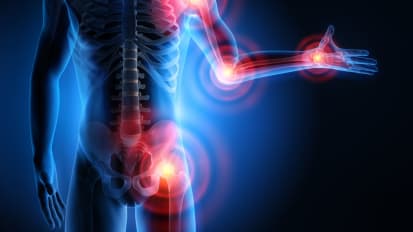 Video
Video
The Intriguing Truth About Orthobiologics: Current Uses, Future Possibilities
For healing diseased or damaged tissues, therapies that use the body's native cellular components may have long-term advantages over go-to treatments, such as steroid injections. Video
Video
Will It Pass? Will It Recur? Get Current on Kidney Stone Management
Urologist Justin Ahn, MD, answers crucial questions on preventing and managing kidney stone disease – a condition affecting 10% of the U.S population, with young patients increasingly at risk. News
News
Physician Survey Shows Lack of Understanding of the FDA’s Approval Process
Many physicians are unfamiliar with how the Food and Drug Administration’s (FDA) regulates new drugs and medical devices, and they may be under the impression that the data supporting these approvals are more rigorous than they are, according to a national survey of physicians conducted by researchers at UC San Francisco (UCSF). News
News
Precision Prostate Cancer Treatment Reduces ADT-Related Dementia Risk
In a new study, UCSF researchers found that cumulative androgen deprivation therapy (ADT) exposure was associated with the onset of dementia in a nationwide longitudinal registry of men with prostate cancer.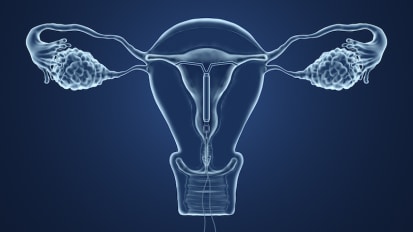 Video
Video
Treatment Options for Fibroids
Dr. Jeannette Lager gives an overview of treatment options for uterine fibroids, including expectant and medical management.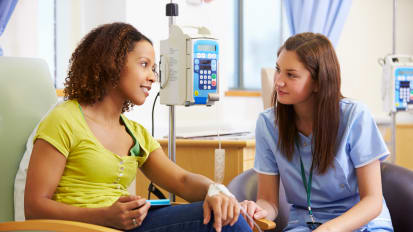 Video
Video
Cutting-Edge Cancer Care: New Approaches to Tricky Tumors
UCSF specialists report from the front lines of treatment for neuroendocrine tumors, pancreatic cancer and sarcomas. News
News
UCSF Study Shows Medication Abortion Without Ultrasound to Be Safe
Medication abortion patients who receive pills by mail without first getting an ultrasound do just as well as those who are examined and given the drugs in person, new research from UC San Francisco has found. News
News
Chances of Receiving Percutaneous Coronary Intervention in a Low-Volume Facility are Increasing, Despite Worse Outcomes
There is a well-established association between hospitals performing higher volumes of percutaneous coronary intervention (PCI) and improved patient outcomes. Video
Video
COVID-19 Vaccines: Up-to-Date Answers on Safety, Efficacy and What the Future Holds
From primary care providers to subspecialists who see immunocompromised patients, medical professionals are facing a barrage of vaccine questions. News
News
Electroconvulsive Therapy for Status Epilepticus and a Genetic Diagnosis for Epilepsy and Renal Failure: UCSF Neurohospitalist Cases
One of the first of its kind, the UCSF Neurohospitalist Program specializes in caring for hospitalized patients with complex neurologic disorders. Video
Video
Shoulder Tutorial: What the Primary Care Doctor Needs to Know
In less than an hour, orthopedic surgeon Dr. Brian Feeley sets you up to diagnose common shoulder problems, including three simple questions to ask, a three-minute hands-on exam, worthwhile tests (and time wasters) and an update on the best new (and standard) therapies. News
News
Could a Drug Prevent Hearing Loss from Loud Music and Aging?
UCSF scientists have achieved a breakthrough in understanding what is happening in the inner ear during hearing loss, laying the groundwork for preventing deafness. Video
Video
A Systematic Guide to Knee Pain
You’re likely to see just four types of knee injury in practice, but tests and treatments vary depending on your patient’s age and goals. Sports medicine doctor Brian Feeley, MD, sets out his straightforward system for assessing and addressing arthritis, meniscus tears and other causes of knee pain. Video
Video
Abnormal Uterine Bleeding: A Guide to Causes and Solutions
In this straightforward talk, Tami Serene Rowen, MD, MS, FACOG clarifies how to distinguish abnormal from normal menses; breaks down the many reasons, both structural and hormonal, for the problem; and provides specifics on medical management – from doses to side effects – as well as surgical options and her favored techniques. News
News
UCSF Health Joins Registry to Improve Cardiogenic Shock Treatment
UC San Francisco’s Heart and Vascular Center has been recognized by The American Heart Association (AHA) for its participation in a new Cardiogenic Shock Registry. Video
Video
Advances in Breast Cancer Care: Individualized Screening, Treatments and Follow-Up
Karen Goodwin, DO, covers everything from how to answer patients’ questions on mammogram frequency to how to counsel them on breast cancer prevention.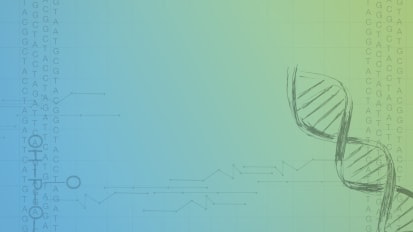 Video
Video
Overview of Metagenomic Next-Generation Sequencing
Charles Chiu, MD, PhD, provides an overview of metagenomics next-generation sequencing (mNGS), a clinical test he and his UCSF colleagues have developed that allows millions of DNA sequences to be decoded from a single clinical sample. Video
Video
Awake Spinal Surgery Case Study
Praveen Mummaneni, MD, presents a lumbar spondylolisthesis case study and discusses the short- and long-term surgical outcomes for minimally invasive and open transforaminal lumbar interbody fusions. News
News
UCSF Post-COVID Clinic Treats Long Haulers
UC San Francisco’s OPTIMAL Clinic (pOst-covid-19/PosT-Icu MultidisciplinAry cLinic) is one of the first clinics in the country established to provide follow-up care for patients who have recovered from COVID-19. The clinic’s goal is to optimize patient recovery through a centralized resource designed to coordinate with primary care services. News
News
Targeted Therapy, Treatment Disparity Featured at Cancer Meeting
Leading cancer researchers from UC San Francisco presented talks about advances in targeted therapy, cancer genomics, eliminating treatment disparities and other cancer research topics at this year’s annual meeting of the American Association for Cancer Research (AACR) conference... News
News
Life-Changing Care for Untreated Spinal Muscular Atrophy: UCSF Case Study
An adult man with spinal muscular atrophy (SMA) had been born with limb weakness that progressed to respiratory muscle weakness. Though able to sit independently since childhood, he was never able to walk. Due to the high cost of medication in his home country, he was unable to receive treatment, so he moved to the United States at age 36 to seek therapy for his SMA.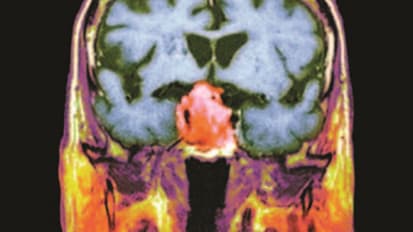 Document
Document
California Center for Pituitary Disorders
The California Center for Pituitary Disorders is the largest practice for pituitary disorders in the United States & performs more pituitary surgeries than any other medical center in the U.S.

